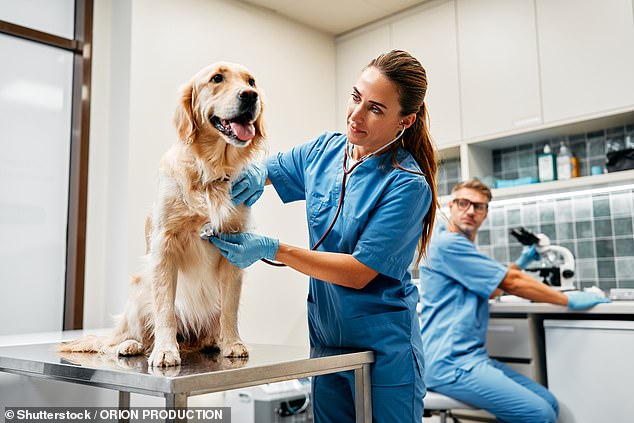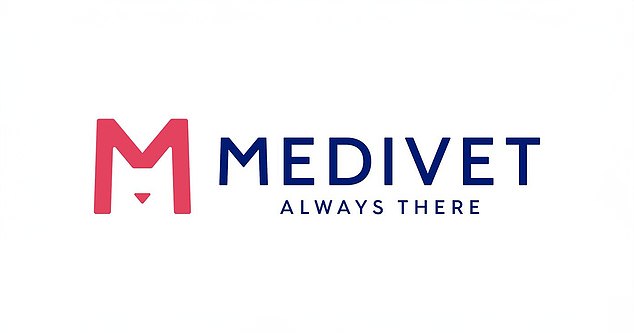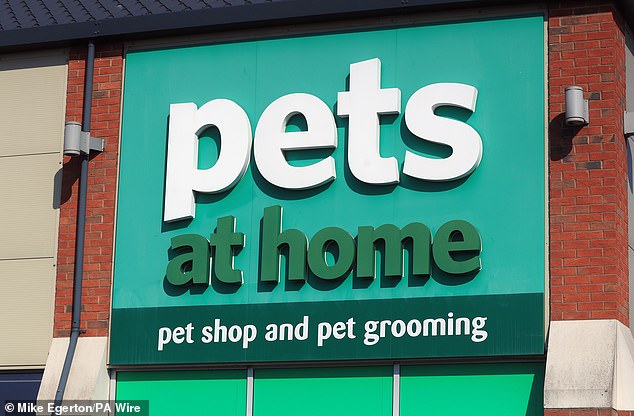I spent £24,000 on vets in two weeks to save my beloved dog Kia before she died. Don’t repeat my mistakes
Kia, a sweet Siberian husky, immediately became part of the family when Dave Foster and his brothers took her in in 2019.
This friendly, affectionate dog was unwanted by her previous owners, but brought support and joy during the pandemic.
But the close-knit Foster clan is now in mourning. Kia died on March 18 at the age of eight.
“On top of our grief at her death, we were then faced with vet bills of over £24,000,” Foster told the Mail.
The costs incurred in the run-up to her death, after a relatively simple procedure, have come to light as authorities investigate the cost to the £5bn veterinary industry.
Kia was a gentle Siberian husky who belonged to the Foster family

Many pet owners are unaware of how costs can quickly add up, especially due to the pricing structure of corporate-owned veterinary practices.
“My parents, siblings and I all loved Kia so much – she was truly part of our family,” says Foster. ‘We were devastated when she became seriously ill after a minor operation to remove a grass seed from her paw failed.’
There is no indication that the veterinarians were blamed for her death or criticized the care Kia received. But Foster was shocked by the allegations.
“We fervently hoped that the professionals would save her life. Instead, we feel that our love for Kia was exploited,” he said.
“Many pet owners are unaware of how costs can quickly add up, especially due to the pricing structure of corporate-owned veterinary practices.” Many pet owners have insurance. But this does not cover all costs. As a result, Foster questions whether pets should even be put to sleep every year, due to financial constraints rather than clinical necessity.
Kia became unwell in early March after a minor procedure to remove a suspected grass seed from her paw. This caused an infection that led to her death.
Over the course of 17 days, during which they hoped to save her life, the Fosters were handed bills totalling £24,164, or about £1,400 a day.
A breakdown of costs on invoices seen by the Mail shows that one of the three veterinary practices involved charged the family £69.57 for a heating blanket for Kia.
The same item, if purchased direct from the retailer, would cost £19.99 – a 248% markup.
In their quest to save Kia, the family spent £21,273 at a specialist vet called Willows, which is owned by Linnaeus Group, a division of US giant veterinary group Mars.
They also invested £2,548 in Medivet, which is backed by Luxembourg-based private equity group CVC Capital.

The Fosters spent £2,548 with Medivet, which is backed by Luxembourg-based private equity group CVC Capital

In addition, Kia was treated at another veterinary practice, costing the family £343.
The three veterinary companies declined to comment.
Foster received an insurance payment of £8,000 for Kia’s treatment, but the family still had to raise £16,000 to cover the costs.
The Competition and Markets Authority (CMA), the body that investigates the veterinary sector, is concerned about allegations of fraud.
More than half of practices in the UK are now owned by just six major companies: CVS, Independent Vetcare, Linnaeus, Medivet, Pets at Home and VetPartners.
Foster says, “Vet costs are unclear, complicated and involve a lot of technical terminology. This information is difficult for desperate pet owners to understand.
‘Unfortunately, increasing consolidation in the industry is causing practices to become financially driven, resulting in inflated prices and unethical margins.
‘We are a hardworking family and were fortunate to be able to give Kia what we felt at the time was the best possible chance of survival – thanks to our efforts.’ The RSPCA has previously warned that rising costs of veterinary bills, insurance and other essentials such as food are driving families to abandon their pets.
The cost is a major concern for the estimated 16 million pet-owning households in Britain.
But while animal lovers struggle with mounting bills for their beloved pets, the owners and top executives of veterinary practices have raked in millions.
Medivet, which is backed by private equity titan CVC Capital, last year generated revenues of £388.6m and profits of £72.9m. It has more than 500 branches across the UK.
This windfall comes as practices benefit from the increase in pet ownership during the pandemic.
In May, the CMA said it had received an ‘unprecedented’ number of responses from the public, with 56,000 owners and employees speaking out about the sector.
“The message from our vets so far is loud and clear: many pet owners and professionals have concerns that require further investigation,” said Sarah Cardell, chief executive of the CMA.
‘We’ve heard stories from people struggling to pay their veterinary bills, potentially paying too much for medicines and not always knowing what the best treatment options are for them.’ The study is being conducted by independent researchers and will be completed within 18 months.
And while it may be too late for Kia, Foster is convinced that change needs to happen.
“Sophisticated investors have carved up the market with limited oversight,” he says. “Regulation is desperately needed.”
Dr. Anna Judson, chair of the British Veterinary Association (BVA), said: ‘Veterans provide highly specialized, tailor-made medical care for the UK’s animals, but without the NHS for Pets and therefore no subsidies to offset the real costs, prices can seem expensive in comparison. While the fees reflect the investment required to keep practices financially viable and open, we recognize that more can be done to improve choice for clients and veterinary teams are already taking action to address the specific concerns of the Competition and Markets Authority around fee transparency and practice ownership. As the CMA conducts its investigation, it is important to remember that veterinarians genuinely care about and prioritize the health and welfare of animals; this is often their motivation to pursue a high-pressure profession.’
* Dave Foster is not his real name.
Some links in this article may be affiliate links. If you click on them, we may earn a small commission. That helps us fund This Is Money and keep it free to use. We do not write articles to promote products. We do not allow a commercial relationship to affect our editorial independence.
